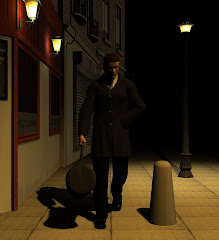The other night I had two conversations about writing with two people holding remarkably different opinions. One of them, a marketing man, believes that you should always identify your target audience before beginning. This will give you the ideal tone, style and even subject for your creation. A piece of writing is simply a product and its sales potential must be built in from the start. The other person is working on a novel which is effectively an autobiography. She has only considered getting it published in the sense of deciding that she doesn't want to ever get it published. Too much of the content will be painful and personal. The idea of some stranger reading it might preventing her from writing the truth.
I instinctively side with the latter extreme. Not just because reducing literature to a commodity is creepy – though it is, of course – but because I don't see the point in it. You can never really know what that target audience thinks. You can only presume, on the basis of what they've read before. So you have to give them the same again. The whole idea of writing being a way of expressing your unique self instantly vanishes. Instead it's just a glorified copy and paste exercise. If you're writing a book then you're no better than those Mills & Boon hacks putting flesh on the same rigid skeleton. If a web site, your output is just a flagpole on which to hang those income-generating banner adverts. Which is fine for some. But I already earn a living doing tasks I don't give a toss about. When I go home and put pen to paper, or fingers to keys, I want to please myself.
Up to a point. I write novels which will almost certainly never get published. Mostly because they're bad, of course, but also because they straddle several genres in a manner which satisfies nobody except me. Yet, unlike my friend, I would like to get the things sold eventually. I may do nothing to facilitate this once they're finished, but the intention is always lurking in my mind as I'm writing them. (And of course I've had the usual day dreams about getting rich from them, of quitting my job after telling my boss, in a tangle of mixed metaphors, what it is and where he can insert it.) It helps, this thought. It makes me sharpen my style, lengthen my descriptive passages, develop my characters more coherently. When I'm writing entirely for myself, I get lazy. The notion of a panel of waiting judges forces an effort I don't want, but nonetheless need, to make.
The idea of an audience has also pushed me in new directions. I generally say I started this blog to express thoughts which will just knock around my head annoying me until I write them down. Not wholly true, actually. They always fade eventually even if I leave them alone. And I never used to be motivated to do anything with them. This post – and every single other one on this blog – proves I still don't exactly take my ideas to reasoned conclusions. But these are lengthy and lucid essays compared to the incomprehensible paragraphs I used to scribble down and shove to the bottom of a drawer. My web site, too, was originally intended to be a dumping ground for miscellaneous stuff I'd already produced. Yet it's encouraged me to start work on some of the abandoned pieces again. Especially my ill-considered York guide which is now perhaps a quarter instead of a tenth complete.
Why? Because of that notion of a reader. Even if said reader is only a bored student who will scan a few lines, sneer and move on, it somehow gives my work a greater purpose. A reader, moreover, who I will never meet, will never even learn about. And that removes the risk from the process – an anxiety which has largely stopped me showing anything to family or friends. I try harder because I think I'm being judged. But I'll never, thank God, learn what mark I get.
I don't think I'm alone in feeling this. The combination of publicity and privacy has helped drive the blog phenomenon, encouraging thousands to home-publish their private diaries and poetry. Look further and you see the same mood in chat rooms, personal web sites, message forums, artificial 'friend' sites like MySpace. It neatly captures where we many of us stand as individuals. Willingly isolated and yet still craving for greater connections with society.
In other words: The middle ground I occupy, compared to the two extremists I talked to, is basically the correct one. So nyaahh.

No comments:
Post a Comment